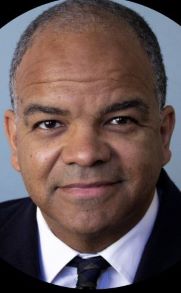INSIDE THE ISSUE
> A Week of Hearings
> — The HSN
> — 340B
> — Prior Auth
> New EOHHS Secretary
> State Moves to Tier 1
> UMass Memorial Merges with Marlborough
> AHA’s Quest for Quality Prize
> Transition
MONDAY REPORT
Seeking State Policy Relief Amidst National Healthcare Problems
In a period of healthcare uncertainty due to abrupt changes in federal law and policy, the care that is provided to immigrants, current Medicaid enrollees, and those who identify with a gender other than the one assigned to them at birth, among others, is now at risk. The provider community is facing drastic cuts to its reimbursements and research grants while preparing for a new wave of uncompensated care from those newly uninsured, as well as increased tariffs on medical supplies and pharmaceuticals.
In the wake of such turmoil, the Massachusetts legislature this week is hearing testimony on a series of state-specific bills that, if passed, would supply some stability to Massachusetts healthcare and, in doing so, help strengthen a core element of the state’s economy.
Descriptions of some key bills follows. MHA, allied providers, and patients are expected to provide testimony for each.
Strengthening the Health Safety Net
Any disruption to the state’s nation-leading uninsured rate will immediately affect the Health Safety Net (HSN) fund – the pool of money used to support care that hospitals and community health centers provide to low-income uninsured and underinsured residents. During recent months, both the House and Senate have offered different ways to stabilize the Health Safety Net and the Healey-Driscoll administration has worked with hospitals to identify potential solutions. The Health Safety Net is facing a $280 million shortfall this fiscal year – which must be absorbed by hospitals alone.
H.1354/S.917, An Act to Address the Financial Sustainability of the Health Safety Net, sponsored by Rep. Dan Cahill (D-Lynn) and Sen. John Velis (D-Westfield) will be heard tomorrow at 10 a.m.before the Joint Committee on Health Care Financing. Since that legislation was filed, some of its aspects may be affected due to provisions in the federal ”One Big Beautiful Bill,” but its core concept – for the health insurance industry to share in financing the shortfall of the safety net – remains.
While hospitals and insurers currently pay an equal upfront amount to fund the Health Safety Net through the annual assessment and surcharge payments, hospitals are solely responsible for any funding shortfall. The growing cost of providing care to the uninsured is now financed by the shortfall allocation alone given upfront contributions have been relatively flat for decades. The need to fully embrace the “shared responsibility” principle will take on even more importance as the number of uninsured people in Massachusetts is expected to increase dramatically following Congress’s passage of the mega bill that is estimated to result in hundreds of thousands of Massachusetts residents losing MassHealth and ConnectorCare coverage.
Protecting the 340B Program

Congress created the 340B drug pricing program in 1992, and over the past 33 years the bipartisan law has protected hospitals and patients from high and rising drug costs, while stretching scarce federal resources to support essential healthcare services to historically marginalized communities – all at no additional cost to taxpayers. In part, the law requires pharmaceutical manufacturers participating in Medicaid to sell outpatient drugs at discounted prices to healthcare organizations that care for many uninsured and low-income patients. In Massachusetts, state law protects the ability of those 340B-covered entities to access discounts on drugs, with limited exceptions, for MassHealth patients under the federal program. Those exceptions are for drugs that cost more than $100,00 per utilizer per year and the total number of drugs subject to the exception is limited to 25.
But last year, the Executive Office of Health and Human Services expanded its restrictions in a different way, issuing a bulletin that prohibited its managed care plans from reimbursing for certain drugs prescribed to MassHealth members if purchased under the 340B program. However, the new drugs, while expensive, did not meet the $100,000 or more definition of high-cost drugs in the regulations. Through the new directive, the 340B drug discounts now accrue to the state as opposed to going to hospitals and other providers serving uninsured and low-income patients. That decision drew widespread concern from the hospital community, especially given the threats that the powerful pharmaceutical industry already is posing to the program, which providers consider to be an essential “lifeline” to their operations and ability to reinvest in their communities
The 340B financing benefit to hospitals will be of even greater importance in the future given other federal constraints and reductions contained within the federal “One Big Beautiful Bill.” H.779/S.845, An Act to Protect 340B Providers in the MassHealth Program, which also will be heard tomorrow at the Health Care Financing meeting, restricts EOHHS from excluding MassHealth coverage of 340B drugs, with the exception of those that cost $100,000 or more per utilizer per year and capping the number of high-cost drugs excluded at 25, in alignment with existing MassHealth pharmacy regulations. It also limits MassHealth payment directives that would deny payment for other 340B drugs to only the seven specific weight-loss drugs EOHHS designated last July. In short, the act – sponsored by Rep. Kate Lipper Garabedian (D-Melrose) and Sen. Brendan Crighton (D-Lynn) – prohibits future 340B carve-outs and preserves the critical lifeline to patients and providers.
“Massachusetts has a narrow window to match federal challenges with local solutions,” said MHA President & CEO Steve Walsh who is expected to testify on both the 340B and Health Safety Net bills tomorrow. “MHA and our members support reasoned debates to strengthen and improve these foundational, structural supports for hospitals and health systems, but providers simply cannot survive further cuts to 340B reimbursements or the weight of historic Health Safety Net deficits. They need the immediate support that these types of home-grown policies provide.”
Insurance Company Prior Authorization

What often delays (or prevents) patients from getting the care their clinicians recommend? What causes physicians to spend hours on a phone during a workday arguing about the care they prescribed? What’s the key barrier to moving a patient out of a hospital bed to a post-acute facility? What causes patient anguish, clinician burnout, and overall dissatisfaction with the healthcare system? The answer to all those questions is “prior authorization” – the requirement that a health insurance company first signs off on a clinical decision before the care is provided. For many services, if there is no prior auth, then there is no care – or else the care is provided by the insurer will not pay for it.
H.1136, An Act to Improve Health Insurance Prior Authorization, sponsored by Rep. Marjorie Decker (D-Cambridge), will be heard tomorrow before the Joint Committee on Financial Services. The companion bill – S.1403, An Act Relative to Reducing Administrative Burden, from Sen. Cindy Friedman (D-Arlington) – will be heard at the Tuesday Health Care Financing meeting. The bills received the strong support of MHA, the Massachusetts Medical Society, and Health Care For All. The legislation would not eliminate prior auth, but under the MHA-MMS-HCFA proposal, the processes would be streamlined. Among other things, there would be greater transparency around denials and appeals, and continuity of care provisions for courses of treatment without having to constantly seek new prior authorizations.
“The Massachusetts Medical Society is grateful to partner with the Massachusetts Health & Hospital Association and Health Care For All on prior authorization reform,” said Dr. Olivia Liao, president of MMS. “Prior authorization requirements delay access to care, resulting in avoidable patient harm and contribute significantly to clinician burnout. Physicians should be spending more time with their patients and less time dealing with paperwork that does not improve quality care. In this moment of unprecedented strain and uncertainty in our healthcare system, we must take every opportunity to eliminate unnecessary administrative waste.”

Dr. Kiame Mahaniah Appointed as EOHHS Secretary
Governor Maura Healey announced last Friday that she has appointed Dr. Kiame Mahaniah as secretary of the Executive Office of Health and Human Services (EOHHS), effective today. He replaces Kate Walsh, who will stay on as a health and human services senior advisor to the governor.
Mahaniah has served as undersecretary of EOHHS since April 2023 and previously served as CEO of Lynn Community Health Center and before that as chief medical officer of North Shore Community Health. He holds an MBA from UMass Amherst, a medical degree from Thomas Jefferson University, and a BA from Haverford College. His residency in family medicine was at the University of Pittsburgh. Mahaniah is a practicing physician in the field of addiction and primary care, who has continued to see patients while serving as undersecretary and plans to continue to do so as secretary.
Walsh led EOHHS since her appointment in January 2023. Previously she had served as president and CEO of Boston Medical Center Health System for 13 years. During part of her tenure at BMC, Walsh served on the MHA Board of Trustees, chairing it during 2017-18.
“I am incredibly grateful to Kate Walsh for her leadership of EOHHS,” Governor Healey said. “She has been the leader we needed to navigate some major challenges, including saving a safety net system of hospitals across eastern Massachusetts during the Steward Health Care bankruptcy last year.” Of her new appointment, Healey said, “As the Trump administration undermines healthcare and food access for hundreds of thousands of Massachusetts residents, Dr. Mahaniah will be committed to making high-quality healthcare more affordable and accessible for all of our residents, bringing an urgently needed focus on primary care and behavioral healthcare, and maintaining our nation-leading health and human services system in Massachusetts.”
MHA’s President & CEO Steve Walsh said, “Dr. Mahaniah is a smart, committed, mission-driven healthcare leader whose expertise and experience make him the ideal person to lead EOHHS. His compassion and care for people are especially critical at this moment when both our providers and patients are feeling the effects of a fragile healthcare system. MHA and our members are profoundly grateful to Secretary Walsh; our commonwealth was privileged to have her extraordinary leadership during a time of challenge and crisis. Governor Healey has made the perfect choice to build on that legacy and our state will be healthier for it. We look forward to our continued collaboration with Dr. Mahaniah and the EOHHS team.”
Patients, But Not Necessarily Hospitals, Breathing Easier
The seasonal flu rate in Massachusetts is next to non-existent as are cases of respiratory syncytial virus or RSV. Even COVID-19 cases are low with just one-third of one percent of ED visits attributable to COVID.
Partially due to the plummeting respiratory illness cases, DPH last week moved all hospital regions in the state from Tier 2 to Tier 1 – or from “moderate risk” to “low risk.” The tiering system was created during the pandemic to address capacity restraints across the state. This 2022 DPH guidance document explains the tiering.
As reported in State House News, DPH Commissioner Robbie Goldstein, M.D., told the Public Health Council last Wednesday, “This change reflects a combination of factors, including reduced respiratory virus activity, improved staffing levels, more effective use of urgent and primary care, and the stabilization of the former Steward hospitals. We’ve not gotten to this point by chance. We’re here through a commitment to tracking the data, listening to and acting upon hospital feedback, staying in close communication with regional partners, and refusing to accept high occupancy as the new normal.” But Goldstein added that “all it would take is one difficult respiratory virus season or another unforeseen challenge to quickly reverse these gains.”
“We echo the commissioner’s note of caution around this latest tier designation,” said MHA’s Vice President of Clinical Affairs Patricia Noga, PhD, R.N. “We remain especially focused on solving persistent discharge delays, which are a major driver of hospital capacity constraints and patient wait times. More than 2,000 patients are currently ‘stuck’ in hospitals because they cannot access the next level of care they require – largely driven by private insurance barriers – and it will take a collective effort from everyone in the sector to free up care beds for every patient in need.”
UMass Memorial Medical Center to Merge with Marlborough Hospital
Two facilities within the UMass Memorial Health System – UMass Memorial Medical Center and UMass Memorial Health–Marlborough Hospital – will merge, following Public Health Council approval last week.
All of the hospitals in the UMass Memorial system are licensed independently. Under the new arrangement, Marlborough will become part of the campus of the Medical Center, joining the current Memorial Campus, University Campus, and Hahnemann Campus. The merger is expected to become official on or around January 1, 2026.
AHA’s Quest for Quality Prize
The AHA encourages hospitals and health systems to apply by September 9 for its 2026 Quest for Quality Prize. One winner and up to two finalists will be presented awards at the 2026 AHA Leadership Summit next July in Denver.
For the first time, eligible applicants will have the opportunity to participate in a simulation-based assessment designed to further evaluate and strengthen patient safety and quality practices. Participation is entirely optional and intended solely as a learning and improvement resource. It will not influence eligibility or evaluation for the award. Qualifying participants will have the opportunity to be considered for the following year’s prize by submitting a shortened application. The simulation opportunity will be offered at no cost to applicants on a first-come, first-served basis. Learn more here.
Transition
William (Bill) Wyman has been named president of MelroseWakefield Hospital and Lawrence Memorial Hospital, a position he has held on an interim basis since October 2024. The hospitals are part of the Tufts Medicine system. Immediately prior to becoming interim president, Wyman was senior vice president for operations at MelroseWakefield for more than three years. He holds a Bachelor of Science in Health Sciences from Merrimack College, a Master of Science in Health Services Administration from the University of Massachusetts Lowell, and a Master of Science in Accounting and Finance from Southern New Hampshire University. Wyman is a fellow of both the American College of Healthcare Executives and the Healthcare Financial Management Association.


 Massachusetts Health & Hospital Association
Massachusetts Health & Hospital Association 